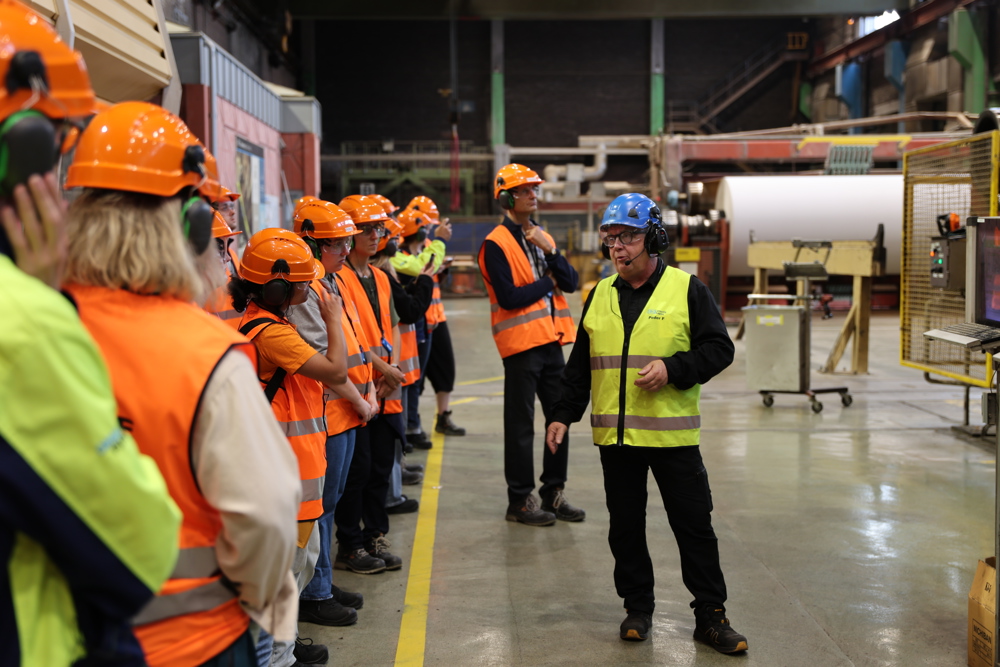Trees For Me’s study trip to Luleå and Piteå emphasized the great need for biomass in the sustainable transition of the steel, metal and other industries.
Marcus Öhman, professor in energy engineering at Luleå University of Technology and project leader of the research work package focused on material and energy within Trees For Me, was one of the organisers of the study trip.
“Biomass conversion, e.g., using fast-growing broadleaves, can enable competitive replacement of fossil fuel carriers and fossil raw materials in the process industry. Biopower can compensate for the intermittency of wind and solar power generation and a potentially reduced nuclear power generation, thus contributing to a flexible and robust energy system. In addition, the production of biofuels is expected to increase in the coming decades, as there is a potential demand for these green fuels in the aviation and maritime sectors”, said Marcus Öhman.
Many process industries demand biomass on the route to electrification and in the development of new materials.
Greener metals and fuels
”We can use biomass in almost all our processes”, said Chuan Wang, manager of recycling and the environment, who together with Ida Heintz introduced the metals research institute Swerim. The institute conducts industrial research and development on metals, from raw materials to finished products.
LTU Green Fuels provided a visit at one of the world's most advanced pilot plants for the gasification of various bioproducts to syngas and green fuels. CEO Fredrik Granberg described the cutting-edge processes and innovation development with the aim of replacing fossil oil with green fuels.
Complex research and processes for sustainable products
”Making paper is easy, making good paper is science”, said tour guide Peder Fahlman at Smurfit Westrock in Piteå, joining the common thought in many of the process industries emphasizing the complexity in how the wood characteristics and other aspects affect the processes and end products.
 Guide Peder Fahlman guiding at Smurfit Westrock which produces paper packaging. Photo: Stina Johannesson
Guide Peder Fahlman guiding at Smurfit Westrock which produces paper packaging. Photo: Stina Johannesson
The potential for using biomass both for industrial processes and in the development of new materials is enormous according to the industry and academic representatives at the trip, and the complexity of the research and development is equally extensive. One of the challenges is to be able to preserve material properties when switching to more sustainable processes.
”We need to do more research on both hardwood and softwood to learn more about the properties and characteristics”, said Fredrik Granberg at LTU Green Fuels.
“Some industrial processes cannot be electrified completely or require carbon atom input, e.g., carbon-based metal reduction processes and chemical refinery, and significant future demand still exists for biobased fossil-free raw materials, e.g., bio-carbon and bio-chemicals. Biomass can also be converted into unconventional materials, such as electrodes, for energy storage”, Marcus Öhman explained.
Fast-growing broadleaves part of solution
Marcus Öhman emphasized that Trees For Me can contribute with new knowledge and competencies to significantly enhance the biomass production needed for the green industrial transition in Sweden.
“As we already experience shortness of forest raw materials in some areas today, there’s a need to increase the biomass production from the forest. Fast-growing trees can be one crucial contribution to this biomass production”, Marcus Öhman concluded.